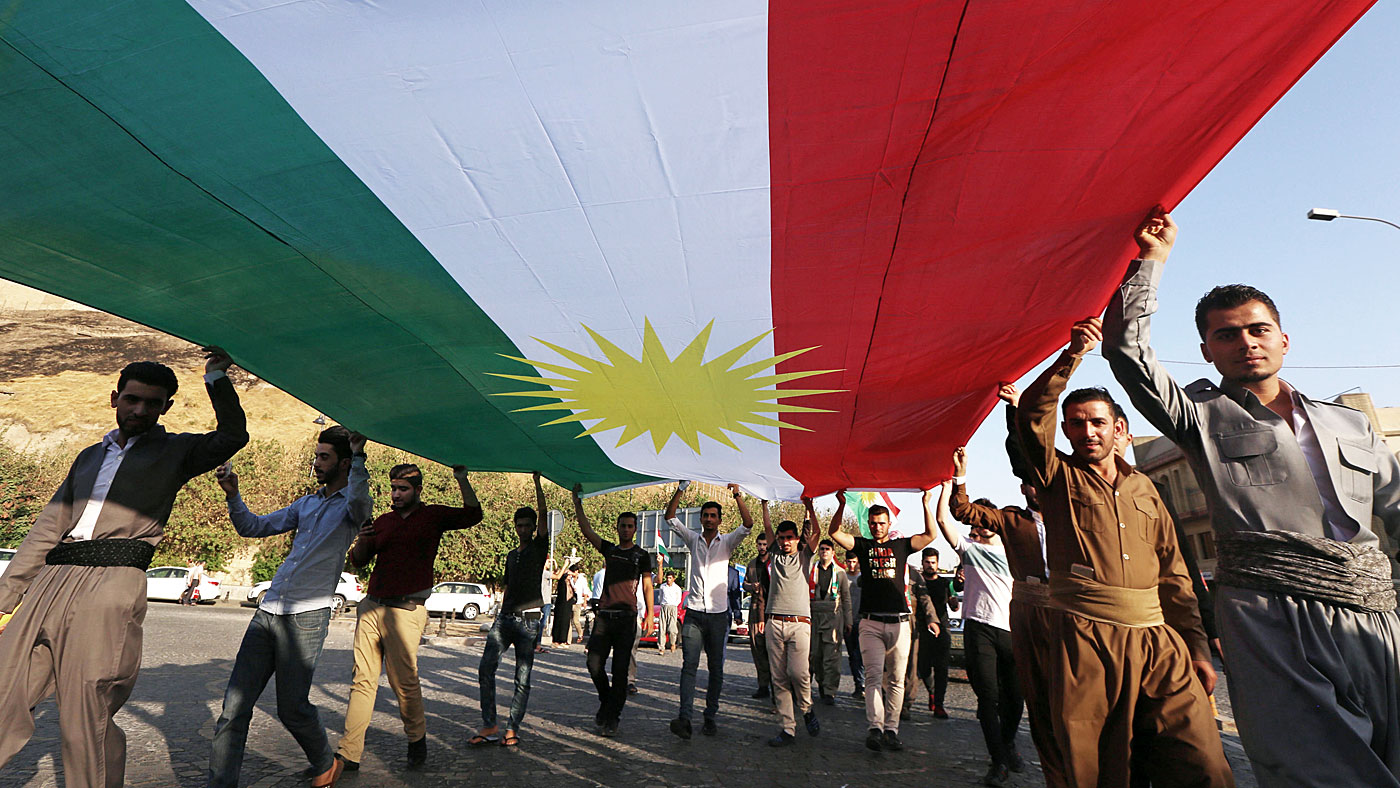Israel endorses independent Kurdish state
Iraqi Kurds are preparing to vote in a referendum on independence

A free daily email with the biggest news stories of the day – and the best features from TheWeek.com
You are now subscribed
Your newsletter sign-up was successful
Israel’s Prime Minister Benjamin Netanyahu has endorsed the creation of an independent Kurdish state, as Iraqi Kurds prepare for a referendum on independence.
Netanyahu said in a statement that Israel still considers the Turkey-based Kurdistan Workers Party (PKK) a terrorist group but “supports the legitimate efforts of the Kurdish people to achieve their own state”.
“Israel has maintained discreet military, intelligence and business ties with the Kurds since the 1960s,” says Reuters, “viewing the minority ethnic group - whose indigenous population is split between Iraq, Turkey, Syria and Iran - as a buffer against shared Arab adversaries.”
The Week
Escape your echo chamber. Get the facts behind the news, plus analysis from multiple perspectives.

Sign up for The Week's Free Newsletters
From our morning news briefing to a weekly Good News Newsletter, get the best of The Week delivered directly to your inbox.
From our morning news briefing to a weekly Good News Newsletter, get the best of The Week delivered directly to your inbox.
This is not the first time Netanyahu has voiced support for an independent Kurdish state - he backed the Kurds’ “aspirations for independence” in a speech in 2014. However, his latest intervention comes at a sensitive time in the region. On Tuesday, the leader of Iraq’s Kurds, Massoud Barzani, said he would press ahead with the 25 September referendum despite a vote by Iraq’s parliament rejecting it.
“His endorsement also clashes with both the US and Turkish positions,” says Bloomberg. The Turkish government, which has recently restored diplomatic ties with Israel following years of estrangement, “is concerned that sovereignty for Iraqi Kurds would encourage its own Kurdish insurgents”, says the news agency, while the US believes a Kurdish vote “could destabilize the region and undercut the war on extremism”.
There are fears a highly public vote for independence could detract attention from the war against Islamic State and stir up hostilities between the Iraqi government and Kurdish separatists.
Netanyahu’s endorsement “will cut little ice in Baghdad”, which has no diplomatic relations with Israel and has strong ties with Israel’s arch-foe Iran, says Reuters.
A free daily email with the biggest news stories of the day – and the best features from TheWeek.com
The goal of an independent state has been the dream of many Kurds since the end of the First World War, when colonial powers carved up the Ottoman Empire.
Iraqi Kurdistan has effectively been a semi-autonomous state since the fall of Saddam Hussein more than a decade ago, but support for full independence has long been opposed by Turkey, Iran and Syria, who fear it could fan separatist uprisings among their own ethnic Kurds.
-
 The ‘ravenous’ demand for Cornish minerals
The ‘ravenous’ demand for Cornish mineralsUnder the Radar Growing need for critical minerals to power tech has intensified ‘appetite’ for lithium, which could be a ‘huge boon’ for local economy
-
 Why are election experts taking Trump’s midterm threats seriously?
Why are election experts taking Trump’s midterm threats seriously?IN THE SPOTLIGHT As the president muses about polling place deployments and a centralized electoral system aimed at one-party control, lawmakers are taking this administration at its word
-
 ‘Restaurateurs have become millionaires’
‘Restaurateurs have become millionaires’Instant Opinion Opinion, comment and editorials of the day
-
 Epstein files topple law CEO, roil UK government
Epstein files topple law CEO, roil UK governmentSpeed Read Peter Mandelson, Britain’s former ambassador to the US, is caught up in the scandal
-
 Iran and US prepare to meet after skirmishes
Iran and US prepare to meet after skirmishesSpeed Read The incident comes amid heightened tensions in the Middle East
-
 Syria’s Kurds: abandoned by their US ally
Syria’s Kurds: abandoned by their US allyTalking Point Ahmed al-Sharaa’s lightning offensive against Syrian Kurdistan belies his promise to respect the country’s ethnic minorities
-
 Israel retrieves final hostage’s body from Gaza
Israel retrieves final hostage’s body from GazaSpeed Read The 24-year-old police officer was killed during the initial Hamas attack
-
 China’s Xi targets top general in growing purge
China’s Xi targets top general in growing purgeSpeed Read Zhang Youxia is being investigated over ‘grave violations’ of the law
-
 Panama and Canada are negotiating over a crucial copper mine
Panama and Canada are negotiating over a crucial copper mineIn the Spotlight Panama is set to make a final decision on the mine this summer
-
 Why Greenland’s natural resources are nearly impossible to mine
Why Greenland’s natural resources are nearly impossible to mineThe Explainer The country’s natural landscape makes the task extremely difficult
-
 Iran cuts internet as protests escalate
Iran cuts internet as protests escalateSpeed Reada Government buildings across the country have been set on fire